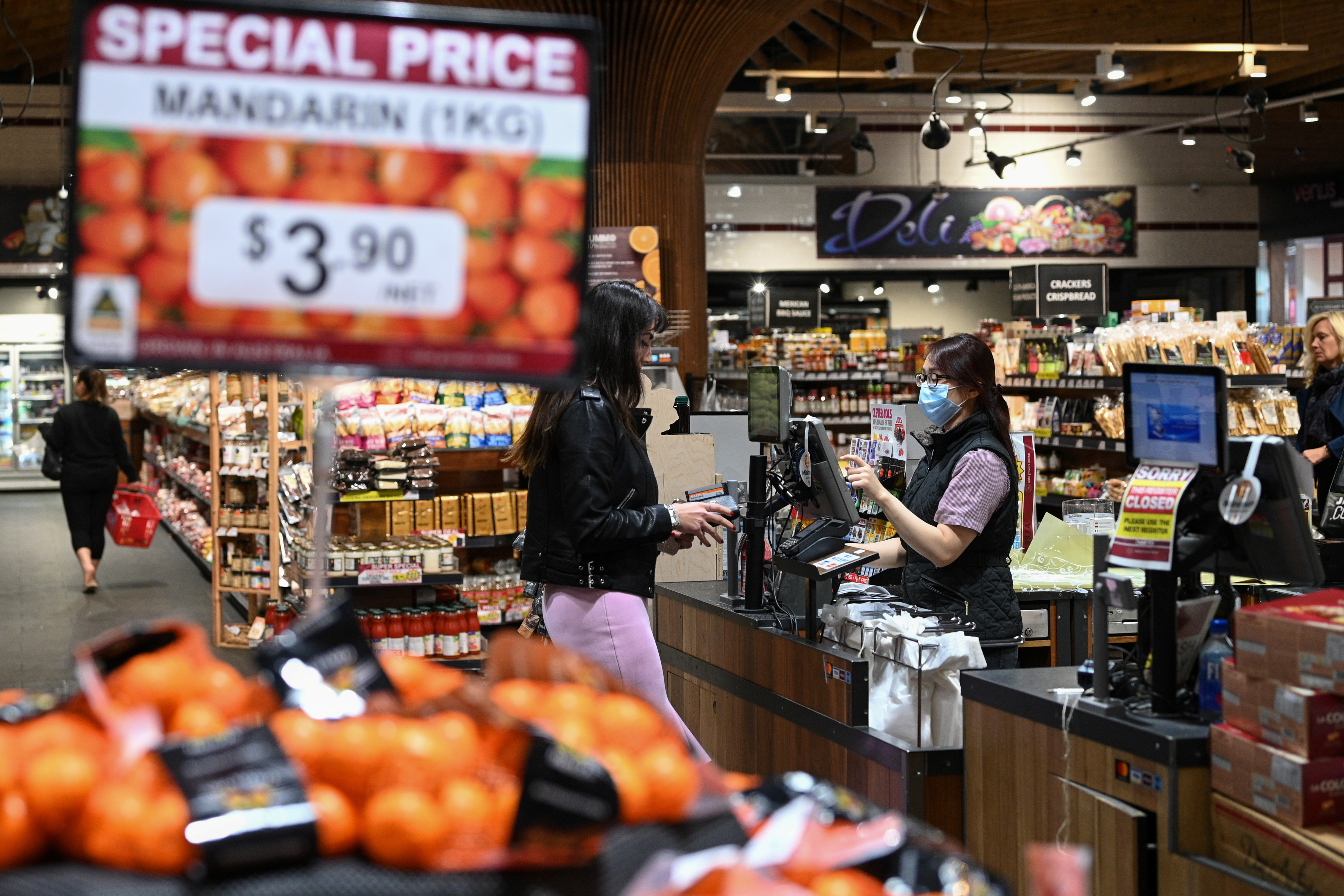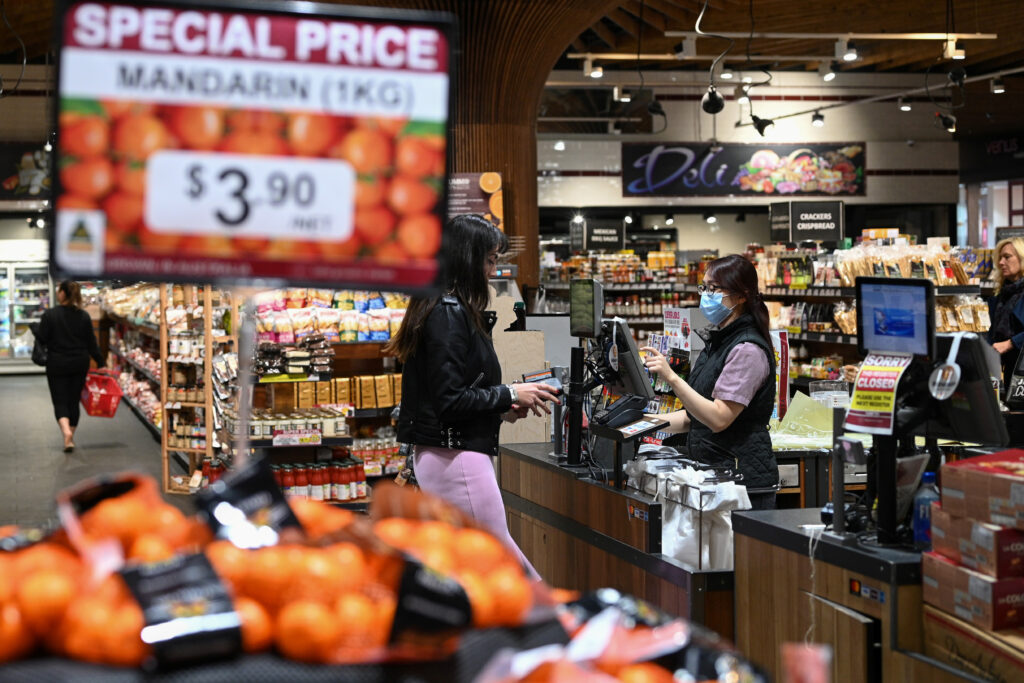
An employee wears a protective face mask while ringing up a customer at a specialty grocery store following the easing of restrictions implemented to curb the spread of the coronavirus disease (COVID-19) in Sydney, Australia, June 17, 2020. REUTERS/Loren Elliott/File Photo Acquire Licensing Rights
SYDNEY, Aug 30 (Reuters) – Australia’s inflation slowed to a 17-month low in July, driven by falls in holiday travel and fuel prices, while a measure of core inflation also cooled, a signal that interest rates might not need to rise again.
As a result, markets moved to price in a 99.5% probability that the Reserve Bank of Australia would pause its rate hikes for a third straight month in September, given inflation is easing as desired. .
They also pared back the chance of one last hike by the end of the year to just 35%, signalling that the RBA is now largely done with tightening.
Data from the Australian Bureau of Statistics on Wednesday showed its monthly consumer price index (CPI) rose 4.9% in the year to July, down from 5.4% the previous month and under market forecasts of 5.2%.
In an encouraging sign, CPI rose by 0.3% in July on a monthly basis, taking the three-month annualised rate to 2.8%, back in the RBA’s target band of 2-3%.
Price increases for tradable goods eased to just 1.7% in July from a year ago, compared with an almost 10% rise late last year, suggesting that global disinflationary pulses are reaching Australia.
The Australian dollar slipped to a session low of $0.6450, while three-year bond futures rallied 8 ticks to 96.26.
“So far, so good – the inflation numbers are less than expected. Obviously it’s partly helped by energy subsidy,” said Shane Oliver, chief economist at AMP, adding the annual inflation rate is trending down in every category of prices, except for rent.
Electricity prices rose 6% in July from June. Michelle Marquardt, ABS head of prices statistics, said they could surge 19.2% on the month, if it weren’t for government rebates.
Rent inflation also accelerated to 7.6% in July, from 7.3%, suggesting services inflation could be sticky.
The RBA has jacked up rates by a whopping 400 basis points to an 11-year high of 4.1% since May last year, although incoming Governor Michele Bullock warned on Tuesday that rates may need to rise again and policymakers would be watching data very carefully.
So far, the flow of data has argued for an extended pause. Retail sales, which showed some resilience in July, were soft overall, wage gains underwhelmed and there were signs that the red-hot labour market might be turning.
A closely watched measure of core inflation, the trimmed mean, eased to 5.6% from 6.0%, and prices excluding volatile fruit, vegetables and fuel and holiday travel, rose 5.8% in the year to July, down from 6.1% in June.
“We are still on the narrow path and we’re getting inflation down – there is no doubt about that. The only uncertainty is whether we have gone too far and hit the recession, the risk is still high,” said Oliver at AMP.
Reporting by Stella Qiu and Wayne Cole; Editing by Muralikumar Anantharaman, Sam Holmes and Raju Gopalakrishnan
: .


